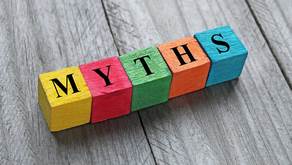If you're like most of the country, you have heard about the Equifax security breach and have some concerns about what happened and, more importantly, how to protect yourself. Here are answers to a few of the most commonly asked questions:
What are the details of the data breach?
On Sept. 7, 2017, Equifax announced that it had experienced a large data breach. Equifax is one of the three major credit bureaus; it is not a bank. The hackers accessed people’s names, Social Security Numbers, birth dates, and mailing addresses for 144 million people - affecting nearly half of the country. In some instances driver’s license numbers were also stolen. They also obtained credit card numbers for about 209,000 people and dispute documents with personal identifying information for about 182,000 people.
How do I know if my information was compromised?
Because of the large scale of this data breach, most of those in the United States have been affected. To check whether or not your information was included in the breach, go to a special website set up by Equifax: www.EquifaxSecurity2017.com. Scroll to the bottom of the page and click on “Potential Impact” and enter some personal information to find out if you’ve been affected. You may also want to check for other close family members and dependents who may not check themselves, including children and the elderly. Be sure you’re on a secure network (not public wi-fi) when you submit sensitive data over the internet.
How can I protect myself?
Now that the potential for identity fraud exists, it is recommended to take additional precautionary measures to decrease your risk.
Enroll in credit monitoring services.
Equifax is offering one year of free credit monitoring and other services, regardless of whether or not your information was exposed. You can sign up at www.EquifaxSecurity2017.com. Other credit monitoring services are also available.
Monitor your credit reports.
You can order a free copy of your credit report from all three of the credit reporting agencies at www.AnnualCreditReport.com. You are entitled to one free report per year from each of the credit bureaus. You can also have other companies monitor your credit report.
Monitor your bank accounts.
We encourage you to regularly monitor your financial accounts for fraudulent transactions. Use online and mobile banking to keep a close eye on your accounts. If you suspect you are a victim of fraud, you should alert your bank right away!
When a customer reports an unauthorized transaction, Bank of Utah will cover the loss and take measures to protect your account. We are committed to safeguarding confidential financial information.
Watch out for scams related to the breach!
Now that this breach is in the news, other fraudsters will try to take advantage of unsuspecting victims by crafting sophisticated phishing e-mails offering products or services to help protect you. Do not trust e-mails that appear to come from Equifax regarding the breach - do your own internet search for Equifax and go to them directly. Even businesses are susceptible to attacks; learn tips to protect a business from scams and other cyber crime.
Visit Bank of Utah's financial security best practices.
Bank of Utah offers a large selection of other best practices to help give you added protection against fraud. Learn Financial Security Best Practices
Should I place a credit freeze on my files?
Before deciding to place a credit freeze on your accounts, consider your personal situation. If you might be applying for credit soon or think you might need quick credit in an emergency, it might be better to simply place a fraud alert on your files with the three major credit bureaus. A fraud alert puts a red flag on your credit report which requires businesses to take additional steps, such as contacting you by phone before opening a new account.
How do I contact the three major credit bureaus?
- Equifax: Call 800-349-9960 or visit www.Equifax.com.
- Experian: Call 888-397-3742 or visit www.Experian.com.
- TransUnion: Call 888-909-8872 or visit www.TransUnion.com.
Where can I get more information about the Equifax breach?
- You can learn more directly from Equifax at www.EquifaxSecurity2017.com.
- You can also learn more by visiting the Federal Trade Commission’s web page on the breach at www.consumer.ftc.gov/blog/2017/09/equifax-data-breach-what-do.
To learn more about how to protect yourself after this, or any other breach, visit www.identitytheft.gov/Info-Lost-or-Stolen.
Some content and excerpts taken from American Bankers Association (ABA) resources titled, ABA Equifax Talking Points and ABA Consumer FAQ dated 9/12/2017. www.ABA.org.




